By Sarah Downey | Jun 26, 2020
Proposed legislation to extend and expand workers’ compensation medical assumptions could further strain small businesses struggling to come back from the economic devastation of COVID-19, opponents say.
Each of the bills seeks to broaden Gov. Gavin Newsom’s temporary executive order on workers’ compensation, which includes a presumption that employees diagnosed with COVID-19 were infected on the job.
The executive order is set to expire July 5.
“If our policymakers and even the best doctors and scientists are struggling to tell us how far and wide this pandemic has spread and how long it will be with us, how are small business owners supposed to have magical powers to see their workplace is where [the worker] got it and they have to pick up the tab?” John Kabateck, California state director with the National Federation of Independent Business (NFIB) told the Northern California Record.
“Maybe the employee contracted the sickness standing in lines at the grocery store, or dropping off their kids at a friend’s house, or even from someone in their own household,” Kabateck added.
The NFIB is among dozens of organizations that signed a June 5 letter to Assemblywoman Lorena Gonzalez, D-San Diego, sponsor of AB 196, which would make permanent the presumption that essential employees caught the coronavirus in a work-related capacity.
“This proposal violates any reasonable standard of fairness that could possibly be expected by employers across our state, and it would divert vital resources away from recovering businesses and stretched state and local budgets,” the letter states.
Two other legislative proposals, AB 664 and SB 1159, which also seek to expand workers’ compensation COVID-19 presumptions, are opposed by the NFIB and a broad-based coalition of business groups.
“Small business owners believe in workers’ comp claims that are legitimate, but presumptions force employers to fund a costlier workers’ comp system and non-work-related illnesses instead of jobs that provide work for Californians,” Kabateck said.
“We are asking our state leaders to please push the pause button on any legislation that is going to further burden small businesses, and we are urging our governor not to go beyond his temporary executive order, and give our job creators a chance to get back on track,” Kabateck said.
This piece was originally published in the Northern California Record. To view the original piece, click here.








